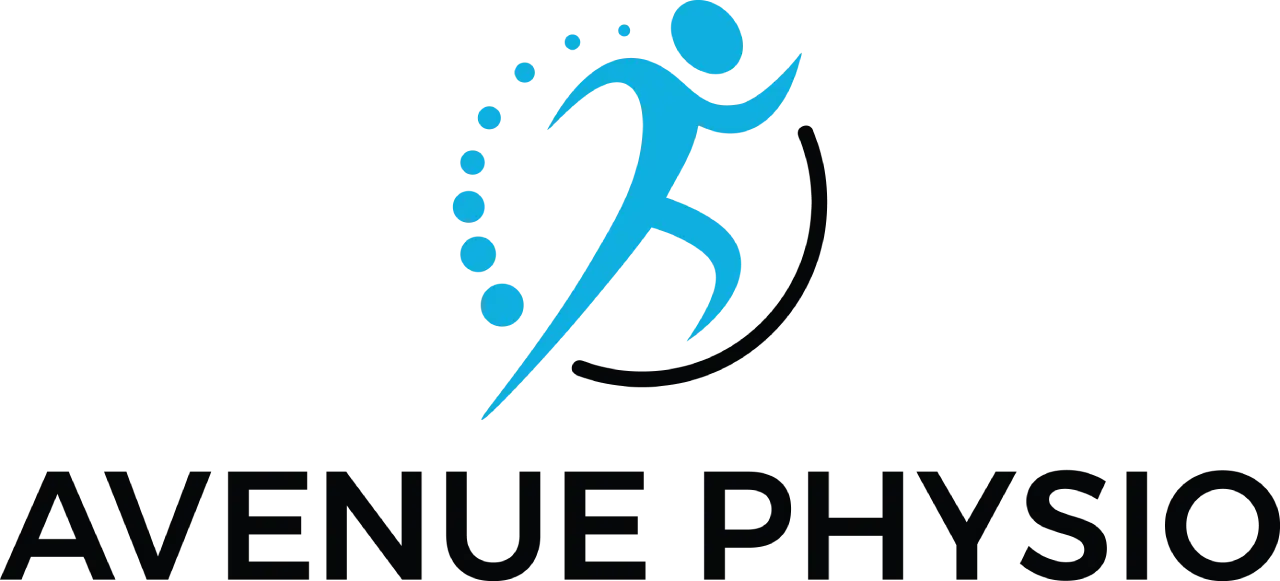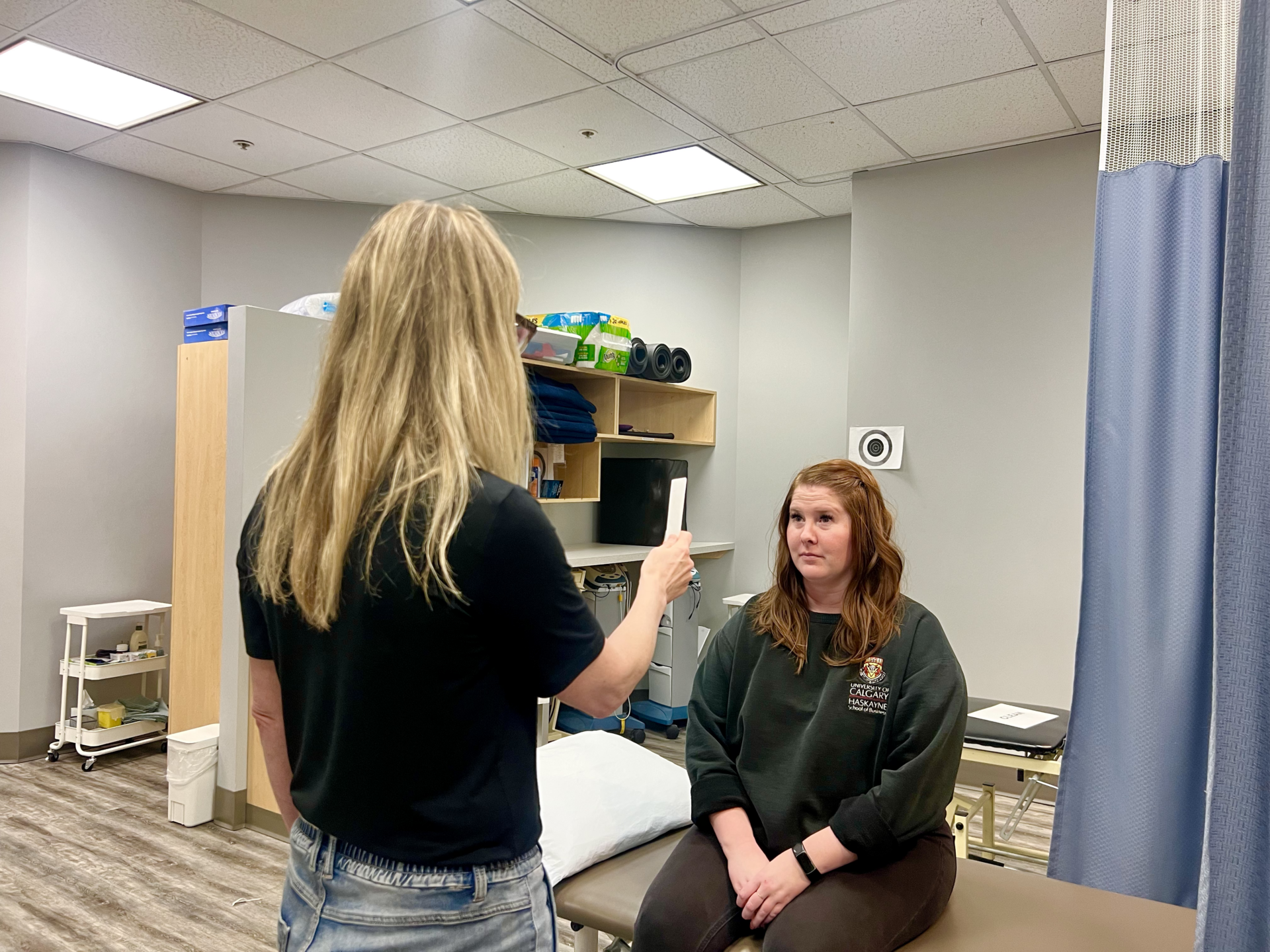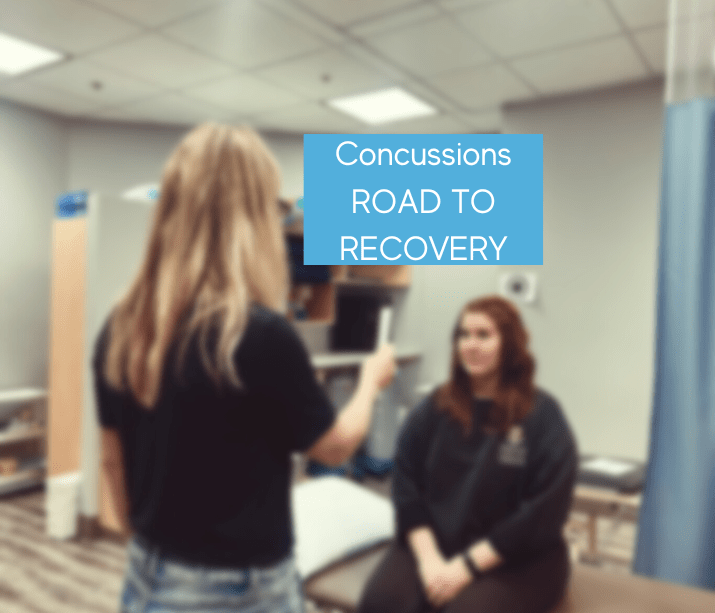
Concussions (mTBI): The updated approach to recovery
Have you recently hit your head and believe you may be experiencing concussive symptoms?
If yes, you should be assessed by a primary healthcare provider such as a Medical Doctor or Nurse Practitioner to receive a formal diagnosis.
After a diagnosis is made, a physiotherapist can help with diagnosis of other sensory/motor impairments, symptom management, and return to work/school/sport.
What is a concussion?
The term concussion, also known as mild traumatic brain injury (mTBI), is used to describe the onset of symptoms following a force that is transmitted directly/indirectly to the head. Concussions are classified as mild traumatic brain injuries because they reflect a short-term functional disturbance in the brain, rather than a structural change that is seen with a severe traumatic brain injury.
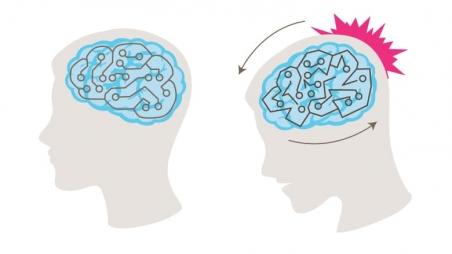
Red Flags to look out for after head trauma:
- Slurring of speech
- Repeated episodes of vomiting
- Convulsions/seizures
- Confusion
- Restlessness/agitation
- Loss of consciousness/fainting
- One pupil larger than the other
- Decreased coordination
- Worsening headache that does not go away
- Drowsiness/inability to wake
If you see any of these red flags, go to the emergency room immediately.
Who is at risk of developing a concussion (mTBI):
Anyone participating in activities that puts the head at risk for contact has the possibility of developing a concussion (mTBI). Concussions are however most often experienced in contact sports. The highest risk sports include rugby, football, hockey, and lacrosse.
Post concussive (mTBI) symptoms and the recovery timeline:
The type and severity of symptoms experienced after a concussion (mTBI) are individualized and do not necessarily depend on the force of the head contact.
The most common symptoms include:
- Decreased memory
- Headache
- Dizziness/vertigo
- Fatigue
- Heightened emotions (irritability, sadness, anger)
- Brain fog
- Eye pain
- Difficulty concentrating
- Difficulty sleeping
- Neck pain/body aches
Full recovery is the return of cognitive functioning and a symptom free return to all activities of daily living. Most adults recover within 14 days and most children within 28 days. However, 10-30% of patients take longer to recover and are considered to have persistent post concussive symptoms.3 These symptoms can last from months to years if not addressed and require management from a care team that specializes in persistent concussion symptoms. These symptoms differ from those seen in the early stages of concussion recovery as they appear to be prolonged by psychological, sociological, and coping strategies.
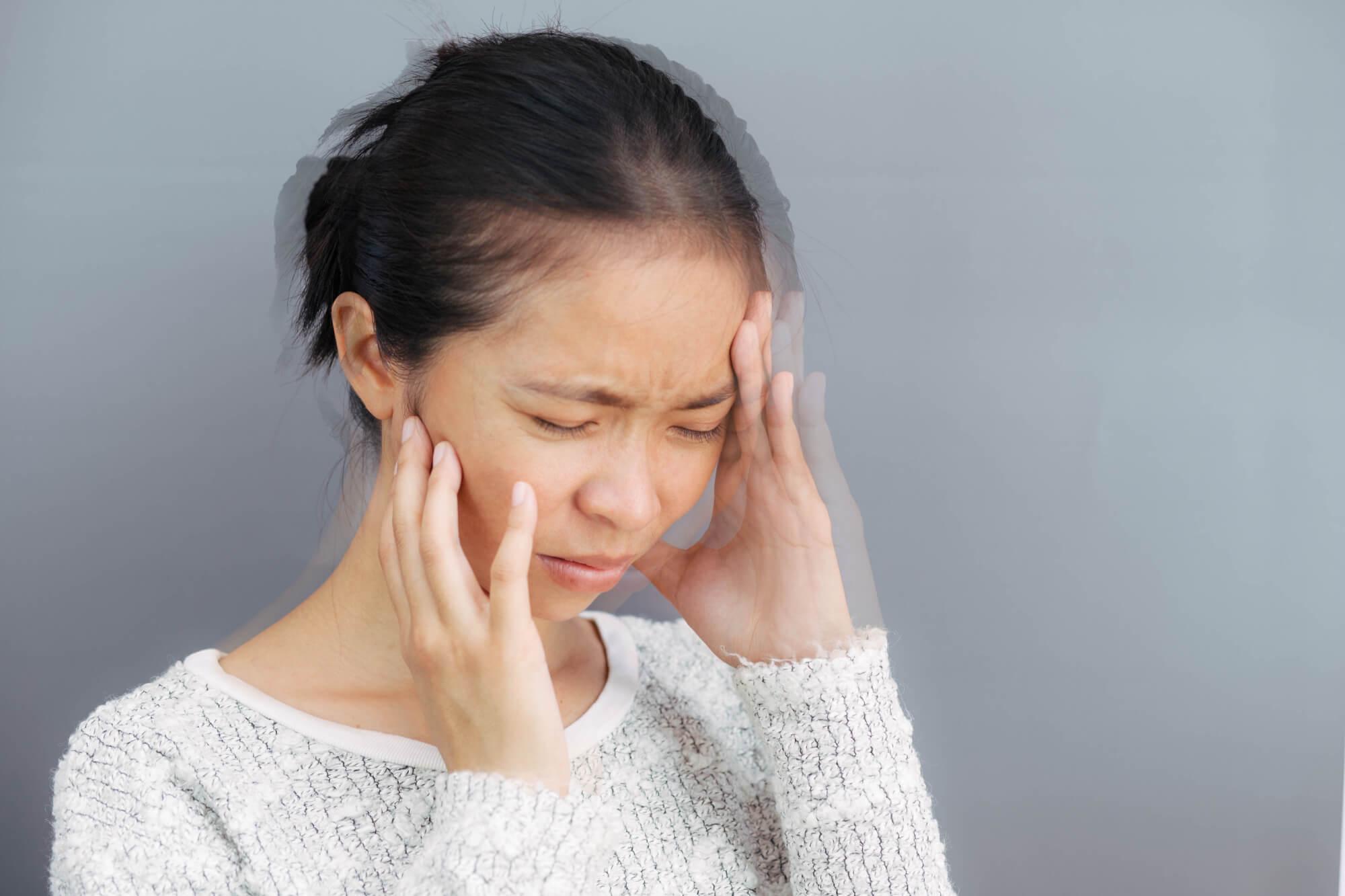
What factors put an individual at risk for experiencing persistent post-concussion symptoms?
- A history of previous concussions (>3)
- Having other neurological conditions
- A history of mental health conditions
- Experiencing large amounts of stress/anxiety
- Having a low level of social support
- Smoking, excessive alcohol consumption, or use of other narcotics
- Having a lower socioeconomic status
- A traumatic mechanism of injury
These factors put you at risk for developing persistent symptoms after a concussion but do not mean you will develop them. It is important to remember that most patients recover from a concussion within a short period of time and do not have persistent symptoms.
A physiotherapist can guide your recovery and decrease the length of time you experience symptoms, your symptom severity, and your risk of developing persistent symptoms.
Recovering from a concussion:
It was previously believed that to recover from a concussion you must go into a dark room and rest until you feel better. However, as research has evolved this is no longer the recommendation given to patients. Active rehabilitation is believed to be the most effective way to resolve symptoms and reduce the length of disability.
Rest is recommended for the first 24-48 hours to allow the brain to start the healing process and symptoms to stabilize, but afterwards, rest is only recommended as needed. Individuals are encouraged to start returning to their activities of daily living and incorporating tasks in small doses. As individuals start to re-introduce these activities, they may experience small exacerbations in their symptoms. This is when relative rest is encouraged, taking a break until symptoms return to a tolerable level.
With repetitive, paced exposure to activities, symptom exacerbations will become shorter and less intense.
At Avenue Physio we will be able to help develop a program to pace your return to activities of daily living and physical activity.
Returning to work/school/sport:
Returning to work/school requires a symptom regulated, staged approach. You will gradually start increasing participation and intensity in activities while monitoring your symptoms. As you start your return, you should not experience new or worsening symptoms. If you do, return to the previous stage in your recovery plan as this indicates you are not quite ready to progress.
It is important to complete a full return to work/school before a return to sport is attempted.
The images below provide a general framework for the return to work/school and sport. However, a physiotherapist at Avenue Physio will be able to guide you through this process and provide an approach tailored to your specific lifestyle and needs.
The images below provide a general framework for the return to work/school and sport. However, a physiotherapist at Avenue Physio will be able to guide you through this process and provide an approach tailored to your specific lifestyle and needs.
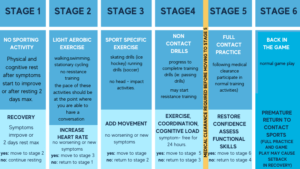
In the meantime.…
Before meeting with a physiotherapist, you can kickstart your rehabilitation by:
- Gradually returning to activities you love using a symptom regulated approach
- Starting a light aerobic exercise program using an exercise bike or treadmill
- Stretching the muscles in your neck and back
- Talking to your doctor or pharmacist about medications for pain management
- Practicing good sleep hygiene:
-
-
- Try to sleep for 6-8 hours
- Wake up at the same time everyday
- Minimize screen time before bed
-
If you suspect you have a concussion, you should be evaluated by a doctor or nurse practitioner. You MUST NOT return to sport on the same or following day, until a concussion has been ruled out.
HAVE ANY QUESTIONS! FEEL FREE TO CONTACT US AT INFO@FIFTHAVEPHYSIO.COM (403)234-9004
